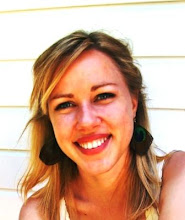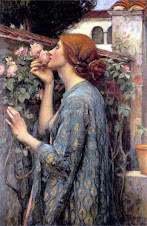You might pity them when you hear their story, and you certainly would if you measure them by the standards you have for yourself. Their bodies are small small small with decades of malnutrition, and hard labor is written into them like text, though I am pretty sure they cannot write or read in any language. Her name is Jayamma. His name is Rose. I met them in Washington, DC, this past December, and this is their story as I remember it.
On December 13, 2007, it was my father's fiftieth birthday - or it would have been - a fact I was trying to keep in the background on the evening of the Washington, DC Benefit Dinner. I had 20? 30? 40? volunteers skittering around three locations in the Omni Shoreham Hotel near Woodley Park. By any survey it is a large hotel, and it felt massive to me as I walked in irregular orbits, trying to check things off an invisible list.
I was on yet another circuit when they came through a doorway, our three South Asian guests for the evening: Jayamma, Rose, and Alice. Alice is an administration director in one of the South Asian offices. Rose wore a dark suit, and he kept looking down at his dark, gleaming shoes as if they had grown there of their own accord. The women were resplendent in jewel-toned saris that picked up the light when they moved. Alice introduced me. I shook their hands, marveling at how the hands of the poor feel everywhere the same - raspish and a little dry, like sand, horned over with calluses at the joints, small-boned and somehow powerful. All three seemed tiny. I was conscious of everyone else in the room seeming practically bovine and hormone-altered by comparison. Corn-fed came to mind. After shaking their hands, I kept up my circuit.
A few more hours passed, and the guests came - all 1,100 of them. They drank wine, talked to friends, and moved into the ballroom to begin picking at decorously arranged salads. In the room were people called Honorable and Reverend, and a few other honorifics, people with a minimum of sixteen years of education and another car parked in the garage besides the one they drove to get there that night, people whose children felt assured or receiving the same advantages. So it felt like an extraordinary moment in social history when they all fell silent in the dimmed room, and Rose and Jayamma ascended the stage to tell their story while Alice translated.
In 1974, Rose and Jayamma were newlyweds in a village in a South Asian country. They were poor. Money problems were easy to come by. A local businessman offered them a $150 advance. All they would have to do is work for him until they earned enough wages to pay him back. They took the money and began working in the businessman's rice mill, but things quickly soured. The mill owner didn't pay in cash, he paid in rice, making it impossible for them to accumulate funds. When business got slow at the rice mill, he refused to let them work elsewhere, so they would go hungry. They worked near a raging fire. They got burns. They got sick from the heat. It made no difference. In the course of time, Rose and Jayamma had children. The mill owner did not allow them to go to school. They worked beside their parents. The children grew up and had children, all working in the rice mill for 30 years and more, all to pay off the debt of $150. You could hear the shifting in the room. Who was not dressed in $150 worth of clothing? How many earned that in an hour? But thirty years and three generations had not paid the debt. What they went through is illegal. What they went through is what slavery looks like today.
People with a stake in the question estimate that there are 27 or 28 million such slaves in today's world, laboring not on plantations but in rock quarries, brick kilns, rice mills, mines, shrimp farms, and yes, brothels, claiming people of every race age and gender on every populated continent. This number is the best guess of educated minds. Today's slavemasters are hardly trotting out their human chattel for a census, but this would not always have been the case. For by far the larger part of human history, slavery was accepted as a natural outcome of war and economic hardship. We are living in an anomalous age, while even though slavery is still widely practiced, it is even more widely condemned by the laws and lipservice of nations everywhere. So the people who are enslaved, like Jayamma and Rose, suffer in secret.
In Rose and Jayamma's case, slavery lasted 31 years or so, including 29 years when forced labor laws were on the books that should have protected them. They were rescued as part of an operation involving undercover investigation and cooperation with local authorities. They were issued official documents ensuring them legal protection and a rehabilitation payment. Their son, Selvam, is training to be a tailor, and their grandchildren are in school. They make a living tending livestock. Theirs is still not a life that you might envy, but it is theirs. They dream.
A new life is beginning. By the math, they must be a little less than sixty years old, though they could pass for much older. Even in their finery on December 13, they bore the physical symptoms of ill use. But when the two former slaves stood up before the bearers of power in the center of what has been called the Free World, no heads of state could have been more dignified, no socialites more winsome, no five-star generals more commanding of respect. I wish you could have been there, to see them slay the fallacy that lives like theirs are somehow different or remote or beneath the greater concerns of a prosperous people.
We spent the week with Jayamma and Rose. They came in and out of headquarters, bundled to the eyes against what were to them conditions befitting a polar expedition. They smiled when spoken to, though not understanding without translation. They received our applause with diffidently inclined heads.
Alesha, the regional assistant for South Asia, took them on outings in the capital. I asked her what they liked. She said that they liked the Smithsonian Air & Space Museum, although Alice got stuck with the task of trying to define the concept of a universe. That, and they liked French fries. French fries. I expect it must have been a comfort to discover the lesser universals, like the ubiquity of tubers cooked in fat to cuisine across the globe.
They came to a staff prayer retreat on the cold, cold Virginia day of December 14, the day after the banquet. At the end of the retreat, there was pizza, and Rose shoveled it down with evident relish. He and Jayamma sat together in three sweaters apiece, still with some of the glow from the previous night in their faces. I found myself watching them. Two people, a man and wife, coming out in the twilight of their lives from the 27 or 28 million. They might be a sign, a symbol, that we are out of our minds, battling against an ancient and entrenched human custom. We might be rowing up a waterfall. After all, if governments and organizations like ours could somehow find a way to intervene for one slave every minute of every day (And the rate is so far from that . . .), it would take 53 years to get the job done. That's providing that no on else falls prey in the meantime.
But no. I look at them and see no sign or symbol. I see Jayamma and Rose, whose hands I shook, who ate pizza with me, who take great pride in their son the tailor. I see love's labor won.
All Clear!
-
Of all the memories, experiences and things I brought back from Uganda, I
have managed not to bring Malaria with me. I was so happy I had to share it
with ...
16 years ago






No comments:
Post a Comment